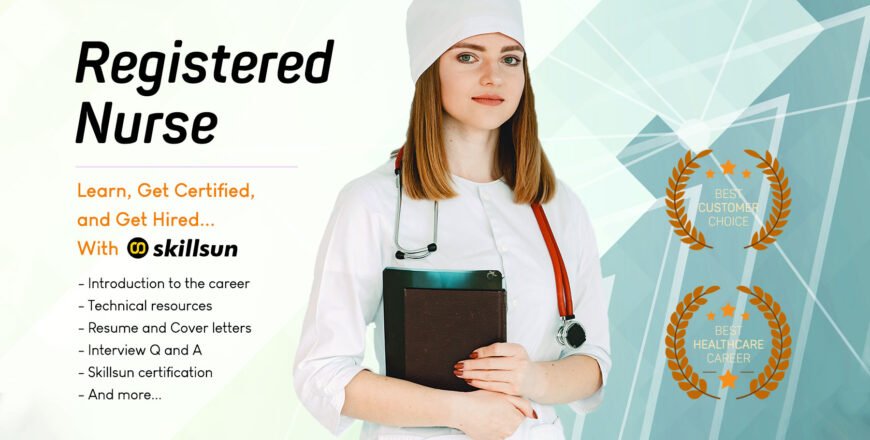A career as a Registered Nurse (RN) is both rewarding and essential to the healthcare industry. Registered Nurses play a crucial role in providing direct patient care, promoting health and wellness, and collaborating with interdisciplinary teams to ensure the well-being of patients. They are responsible for administering treatments, medications, and interventions, monitoring patients’ conditions, and offering emotional support to individuals and their families.
As healthcare continues to evolve, the demand for skilled and compassionate Registered Nurses remains strong. RNs work in a variety of settings, including hospitals, clinics, nursing homes, schools, and home healthcare. Their role involves not only clinical tasks but also communication, patient education, and advocating for patients’ rights and well-being.
Career Roadmap: Embarking on a journey to become a successful Registered Nurse involves several steps, from education and training to obtaining licensure and advancing in the field. Here’s a general roadmap to guide you through the process:
Step 1: Education
- Obtain a high school diploma or equivalent.
- Pursue a nursing education program:
- Associate Degree in Nursing (ADN): Typically takes 2-3 years to complete.
- Bachelor of Science in Nursing (BSN): A 4-year degree that offers a more comprehensive education and broader career opportunities.
- Accelerated BSN programs for individuals with non-nursing degrees.
- Some RNs may pursue a Master of Science in Nursing (MSN) for advanced practice roles.
Step 2: Licensure
- After completing an accredited nursing program, you must pass the National Council Licensure Examination for Registered Nurses (NCLEX-RN) to become a licensed RN.
- Licensure requirements vary by state, so research and fulfill the specific requirements in your intended practice location.
Step 3: Entry-Level Positions
- Begin your career as an entry-level Registered Nurse, gaining practical experience and honing your skills.
- Work in hospitals, clinics, nursing homes, or other healthcare settings to gain exposure to various patient populations and medical conditions.
Step 4: Specialization and Advanced Practice
- RNs can pursue specialization in areas like pediatrics, critical care, oncology, and more. This might involve additional certifications or advanced education.
- Some may choose to become Advanced Practice Registered Nurses (APRNs) by obtaining an MSN and specializing as Nurse Practitioners, Clinical Nurse Specialists, Nurse Anesthetists, or Nurse Midwives.
Step 5: Continuing Education and Professional Development
- The field of healthcare is dynamic, requiring RNs to stay updated with the latest medical advancements, technologies, and best practices.
- Pursue continuing education courses, workshops, and certifications to enhance your knowledge and skills.
Step 6: Leadership and Management Roles
- With experience, RNs can progress into leadership roles such as Nurse Managers, Clinical Coordinators, or Directors of Nursing.
- These roles involve overseeing teams, managing budgets, and ensuring the quality of patient care.
Step 7: Special Projects and Advocacy
- Experienced RNs might engage in special projects, research, or healthcare policy advocacy to contribute to the improvement of patient care and nursing practice.
Step 8: Mentorship and Education
- Seasoned RNs often become mentors, preceptors, or educators to pass on their knowledge and experience to the next generation of nurses.
The roadmap to becoming a Registered Nurse is diverse, allowing for growth, specialization, and making a meaningful impact on patient health and well-being. With dedication, ongoing learning, and a commitment to compassionate care, you can build a fulfilling and impactful career in the field of nursing.





